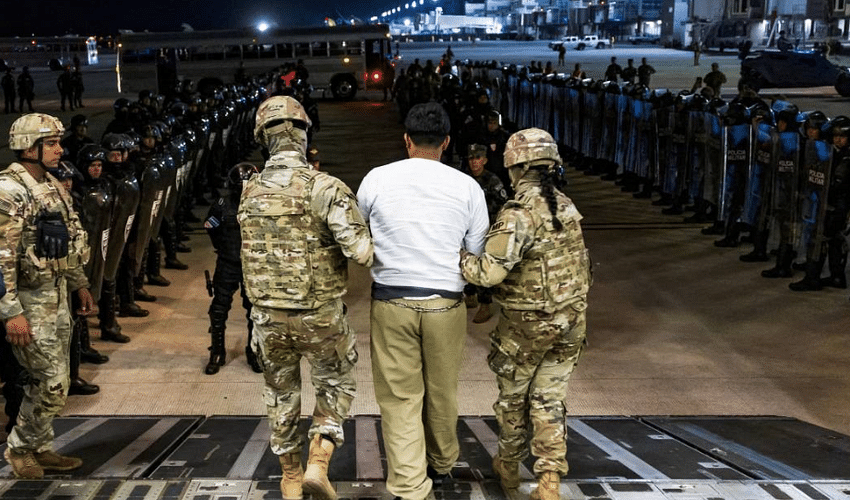World
A US judge has ruled that hundreds of Venezuelans deported to El Salvador have the right to contest their detention.

A US judge ruled on Wednesday (June 4) that hundreds of Venezuelans deported from the United States to El Salvador under an 18th-century wartime law must be given the opportunity to challenge their detention. The judge also ordered the Trump administration to facilitate these legal challenges. US District Judge James Boasberg did not explicitly order the administration to bring the detainees back to the US, but gave the government one week to explain how it plans to enable the deportees to file legal petitions.
Boasberg stated that the migrants were deported without proper notice or the chance to contest their removal. He emphasized that this process, which was denied to them, must now be provided, warning that without such safeguards, the government could arbitrarily deport individuals without any recourse. It remains unclear how the migrants, held at El Salvador’s Terrorism Confinement Center, will be able to submit their legal challenges, known as habeas corpus petitions.
The deportations occurred in March after President Donald Trump invoked the 1798 Alien Enemies Act to quickly expel alleged members of the Tren de Aragua gang without standard immigration procedures. Boasberg’s ruling is the first judicial decision addressing these detainees’ situation. The White House rejected the judge’s intervention, stating that immigration and national security decisions lie with the President and the Executive Branch. White House spokesperson Abigail Jackson said Boasberg’s rulings threaten public safety and asserted the judge does not have the final say.
Families and lawyers of the deported Venezuelans deny any gang connections and argue the migrants were not given a fair chance to challenge the allegations. The Trump administration is paying El Salvador’s government $6 million to detain the migrants. In April, the US Supreme Court ruled that migrants must be allowed to challenge removals under the Alien Enemies Act, leading several courts to halt further deportations of alleged gang members. However, these rulings only apply to those still in the US.
Boasberg’s decision is another setback to Trump’s aggressive immigration policies. While the president has seen some support from the Supreme Court on immigration, he has also faced criticism from the judiciary. Trump called for Boasberg’s impeachment after the judge temporarily blocked the deportations in March. This call was rebuked by Chief Justice John Roberts, who emphasized that appeals—not impeachment—are the proper way to handle disputes over judicial rulings. At the time of the March ruling, deportation flights had already departed. When the administration did not comply with Boasberg’s order to return the migrants, he began investigating potential contempt of court, but that probe is paused pending appeals.
Boasberg referenced a Supreme Court decision involving another deported Salvadoran migrant, Kilmar Abrego Garcia, to balance the government’s foreign policy authority with the migrants’ constitutional rights. While the Supreme Court upheld lower court rulings protecting migrants’ rights, it also emphasized deference to the government on foreign policy. Boasberg’s latest ruling allows the Trump administration to propose how the Venezuelans can submit legal challenges, aiming to respect both executive authority and constitutional protections.



